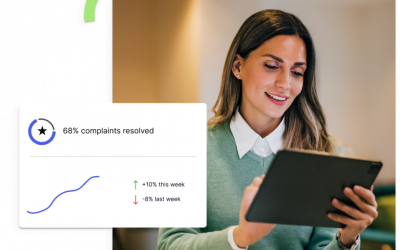When you think of big data, any of the following phrases might come to mind: growth, explosion, flood, torrent, etc. With 2.7 zetabytes of data existing in the digital universe today, there’s no other way to describe the amount of data businesses are dealing with than the words we just mentioned.
Simply put, companies are overwhelmed with the amount of data they have and what to do with it. There is no sign of slowing down, either, as new data is spewing out of every system at a pace never before seen.
As businesses grapple with huge quantities and varieties of data on one hand, they also face ever-faster expectations for analysis on the other. When data analysis is a “do or die” business requirement, the stakes are high for meeting big data demands head-on.
Data Analytics Processes
It takes more than tools and technology to harness the power of big data. Companies must find a platform that provides highly distributed architectures and new levels of memory and processing power.
To keep up with the explosion of data, companies must respond with faster data applications. These may include:
- Applications that provide snapshots of data objects or events from multiple data points
- Applications that process high-speed data feeds with embedded, rules-driven logic
- Real-time or near real-time aggregation and analytics. Real-time transactional or interactive processing applications involving large, multi-terabyte, internet-scale data sets
- Collection of data that transforms metrics into powerful intelligence that your workforce can use to quickly adapt programs and processes
Data Analytics Leadership
Processing the data effectively is only the first step. More than ever before, big data requires effective leadership to make the most of valuable information. However, senior management often leaves the details to the data science team – after all, a leader’s skill set is quite different from that of a numbers guy or gal.
Since the information gathered by the data science team will be used to guide high-level decision-making, senior management must be involved in leading the analytics effort. In fact, the most important skills in analytics aren’t even technical at all – they are critical thinking skills.
Decision-makers need not be math geniuses or computer science wizzes to work with data science. Someone high up in the organization has to advocate for the correct use of data. This person could be a chief data officer, or whatever else you would like to call him or her, but they must be a leader first. They need to understand the complexities of the business, recognize opportunities for better use of data, and make the business case for assembling the resources.
One of the most common mistakes in data analysis is collecting data without knowing how it will be used. A good leader doesn’t view analytics as a separate business practice, but as a part of the business plan itself. The results of a data analytics program will only be useful if the collection is done with purpose.
This purpose starts with a problem to be solved or a question to be answered. Managers should not rely on data scientists to take the lead. Instead, they need to choose which problems to solve and how the organization should incorporate analytics into its operations.
Even if these leaders aren’t “numbers” people, it is up to them to determine what to measure and what these numbers mean to the overall business strategy.
Don’t get burned by the volcanic disruption of data. A quick and robust platform will make your life easier as you leverage your company’s big data to make smarter, more strategic decisions.




